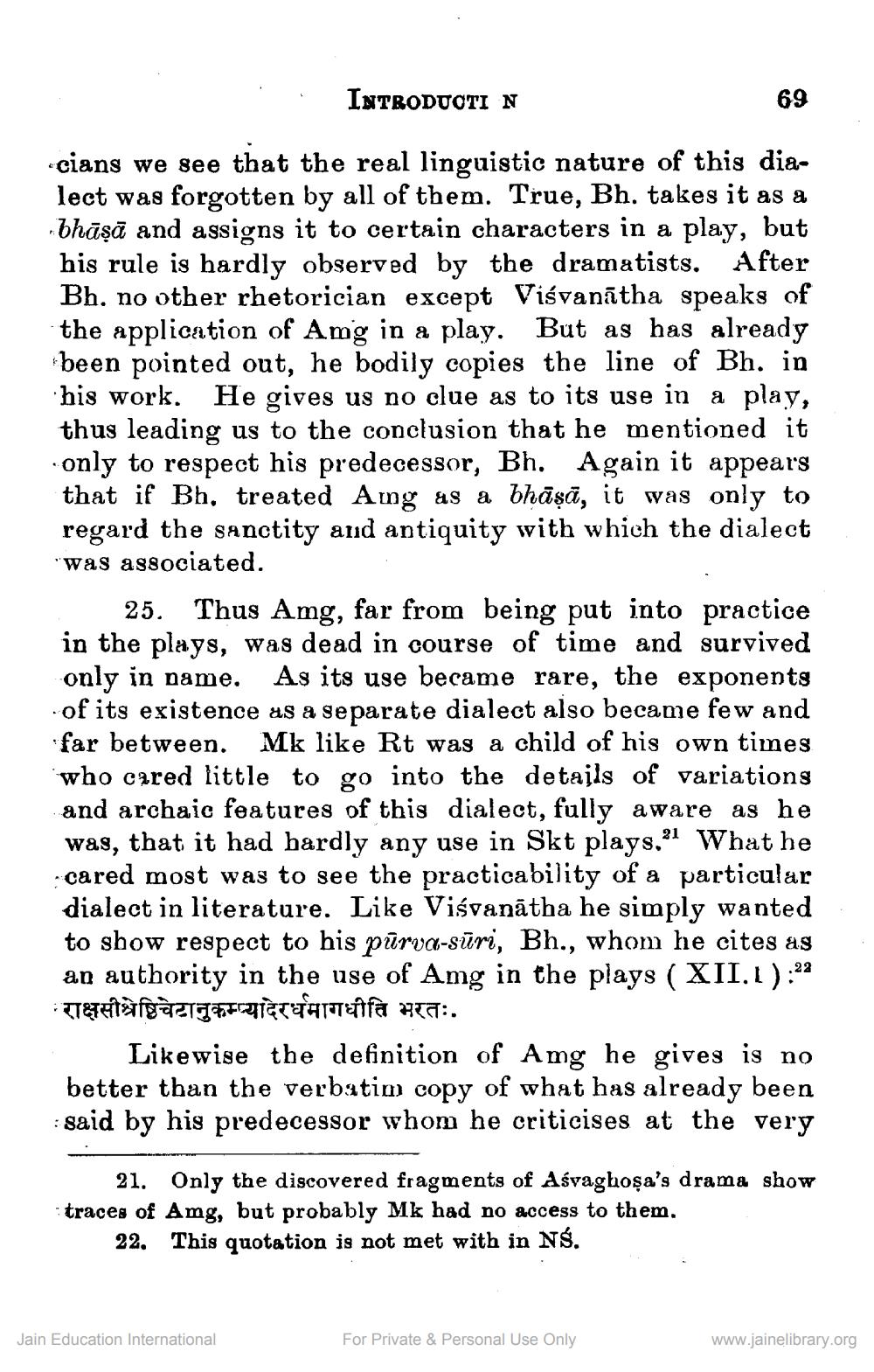________________
.
:
INTRODUCTI N
69
cians we see that the real linguistic nature of this dialect was forgotten by all of them. True, Bh. takes it as a bhāṣā and assigns it to certain characters in a play, but his rule is hardly observed by the dramatists. After Bh. no other rhetorician except Visvanātha speaks of the application of Amg in a play. But as has already been pointed out, he bodily copies the line of Bh. in his work. He gives us no clue as to its use in a play, thus leading us to the conclusion that he mentioned it only to respect his predecessor, Bh. Again it appears that if Bh, treated Amy as a bhāsā, it was only to regard the sanctity and antiquity with which the dialect "was associated.
25. Thus Amg, far from being put into practice in the plays, was dead in course of time and survived only in name. As its use became rare, the exponents of its existence as a separate dialect also became few and far between. Mk like Rt was a child of his own times who cared little to go into the details of variations and archaic features of this dialect, fully aware as he was, that it had hardly any use in Skt plays,21 What he cared most was to see the practicability of a particular dialect in literature. Like Viśvanātha he simply wanted to show respect to his pūrva-sūri, Bh., whom he cites as an authority in the use of Amg in the plays ( XII.1):22 राक्षसीधेष्ठिचेटानुकम्प्यादेरर्धमागधीति भरतः.
Likewise the definition of Amg he gives is no better than the verbatim copy of what has already been said by his predecessor whom he criticises at the very
21. Only the discovered fragments of Ašvaghoşa's drama show traces of Amg, but probably Mk had no access to them.
22. This quotation is not met with in N$.
Jain Education International
For Private & Personal Use Only
www.jainelibrary.org




